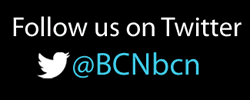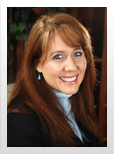|
To receive daily emails from Breaking Christian News to your inbox CLICK HERE
Dr. Corinne: Asking For Help; We Are Hardwired to Lean on Each OtherIf you could call someone and ask for a favor, walk up to a coworker and get the advice you need, or feel vulnerable enough with someone to share your fears, would the consequences really be that bad?
Is it because you don't want to be seen as weak or unable to complete a task? Is it because you're a perfectionist? Is it because you feel shame? Whatever your reason, it likely has to do with fearing what happens when you let go of control. Today my goal is to share with you that it's okay to let go of that control. In the end, you'll be happier for doing so. In fact, God created us with the need for help. When He created Adam, He knew He didn't want him to be alone, so He created Eve with this purpose in mind. (Genesis 2:18) For many people, the idea of letting go of control is perceived as and equated to not being capable. This generalized belief is due to the culture we live in, where we're socialized to believe that we MUST be independent and pull ourselves up by our bootstraps. In reality, not only is it actually beneficial for us to reach out for help from others, but doing so can release us from this trap of a belief we have that we have to be okay, and we have to be capable, all the time. Repeat after me: "It's okay not to be okay." About the time we hit puberty and start gaining a bit more independence, we suddenly start thinking we know everything. We've got the hang of this life thing, and we get it, we don't need to ask for help anymore as a child would. This feeling tends to ebb and flow throughout adulthood, with people floating along either end of the spectrum. For those of us who might identify as 'control freaks,' 'perfectionists' or 'type-A,' the feeling of knowing everything might be a bit more prevalent. Another thing that makes asking for help even harder is the existence of the Internet. Not so long ago, if you didn't have an answer to something, you'd find a reliable source to explain it to you, usually a real live person. Today, the Internet has become our go-to for information and advice. While sometimes this option is empowering, at other times, it's not beneficial at all. Asking for help can chip away at our pride, make us question our skills and expertise, and can even create really awful anxiety, but it doesn't have to make us appear weak. By asking for help, we create better results. Before we get into why asking for help creates better results, let's take a second to touch on what happens when we continue to try to do it all on our own. We like to believe that we don't have a breaking point—a time when the workload is too much, a task is too difficult, or we just mentally cannot handle it anymore—but we do. Not asking for help increases your frustration and stress levels, which makes you overwhelmed, indecisive, and slows your progress overall. At this point, not only is time wasted, but the stress you've been feeling has taken a toll on your physical and mental health. You're not sleeping well, you're not eating well, you're drinking too much coffee, stress hormones are going crazy inside your body, and as a result, you're forced to come to a complete halt. Is it worth it? If you're still worried that asking for help will make you seem weak, consider this. When you put your pride aside to ask for help, you're putting yourself first. You're demonstrating that it's in your best interest to have someone else come in and take some of the load off your back. Consider why powerful people have assistants. They know that they can't do everything on their own. In fact, they pride themselves in having a staff or team to help them take care of the things that they aren't able to. Besides taking pressure off of yourself, asking for help helps you gain perspective. Whether it's asking someone to help you with a project at work, or asking a therapist to help you gain insight, working with others in any capacity can help you broaden the way you think. When you're stuck in a rut, it can be hard to break out and see an obvious solution. When you ask for help, all of that changes. Here's an example that I love to share. A client goes into their therapist session, saying that they're so depressed that they don't have the energy to wash the dishes. For weeks they've been in a spiral of feeling guilty, ashamed, and more depressed every time they dirty a dish then don't have the ability to wash it. They can't seem to think of a solution to this problem. The therapist hears this and simply says, 'get some paper plates.' The client had never even considered this solution because they were so worn down in their own cycle of shame, but this small change helped them focus their energy elsewhere (not at the dishes) and get out of their rut. Perhaps the most effective way I've found to prove that asking for help is positive is to show the practicality of it. Picture that you're sitting down to a list of tasks, all with a deadline—let's say, end of the day. You have two tasks that no one else can do except for you, and you have half a dozen other tasks that could be outsourced. These tasks could range from organizing a spreadsheet in the office to cleaning a bathroom or making dinner. When you ask for help, whether from a coworker, a house cleaner, or a restaurant, you'll be able to get your important tasks done and still get everything else done in time. You won't keep anyone waiting, and you'll maintain your own sanity throughout the day. Asking for help is a blessing to others. Here's a perspective that you may not have considered. Asking for help is a way to show people that you trust their ideas, feel competent in their skills, and appreciate their advice. By asking for help, you have the power to show people around you that you value their talent and skills, which will help you build connections, community, and social currency. If you're unsure where to start, begin by asking for their ideas and opinions. One metaphor I like to use is that of the wax and flame. Every day, you do things that can be considered your 'wax.' Taking out the trash, washing dishes, answering emails, making dinner, driving to work—all these tasks are things you have to do, but you don't enjoy. Hopefully, each day you're also able to do some things that are in your 'flame,' like giving a presentation, offering advice to others, taking your dog for a walk, or coordinating an event. Everyone has a different list of skills and tasks that make up their wax and flame. The desire to repay help appears to be hard-wired in the human species, and this reciprocity is so powerful that you can generally assume that you'll be helped when you help others. Therefore, when you do ask for help, don't be surprised if and when that person comes back to you asking for help, especially in a work setting. The norm of reciprocity yields a psychological benefit for those reaching out—it's much easier to reconcile asking for help when you yourself have been helpful. So if you haven't already, build a reputation as someone who helps others, and others will want to help you. But remember this, the effects of this reputation are short-lived. You'll have to continually prove to those around you that you are willing to help on a regular basis. You can't rely on a good deed you did months ago. When asking for help, it might make sense in your mind that you're trying to show that you value the other person's opinion or skillset, but you have to be sure that your words are conveying that as well. When asking for help, be humble, and try to pay a compliment. For example, "I know that you've got your own list of tasks today, but you're so much better at Excel than I am. Would you mind taking a look at this document when you get a chance and making sure that everything looks okay?" Another important factor in asking for help is to know what you're asking for. Instead of saying, 'fix this for me,' give the person the information they need. One way to do this is by framing your request in a 'SMART' format. SMART stands for specific, measurable, achievable, relevant, and timely. Here's an example: "While you're out, could you please pick up some paper plates from the grocery store by 3 PM? I'm stuck in a virtual online meeting right now, and I'm not sure I'll be able to make it before they close." Sometimes we get stuck in a mindset that a task is so impossible that if we can't solve it, no one can. When you find yourself thinking this way, begin asking questions. You might not know that your coworker, who works as a data analyst, actually has a degree in marketing. You might not realize that your friend also lives with the same mental disorder you do and can offer support. When you begin asking for help, you don't know where that road will lead—even if someone can't help you directly, they could point you in the right direction. Perhaps, most importantly, remember that no one can do everything on their own. What I have noticed over the years of being a doctor is that when the person finally asks for help, they have been dealing with their health issues for years. If the person would have asked for help earlier the problem could have been helped faster. Ask yourself, if you do not actively want to learn from others, are you really growing as a person? If you're not getting to know the skills and talent of those around you, how well-connected are you, really? Remember that when you don't ask for help, you're missing out on more than social connections and team-building, you're putting more on your plate than you can handle, which can result in: - lost time - lack of productivity - do-overs - mistakes - failures
How would your life be different if you had a mutual sense of reciprocity with those around you? If you could call someone and ask for a favor, walk up to a coworker and get the advice you need, or feel vulnerable enough with someone to share your fears, would the consequences really be that bad? Why asking for help makes you stronger How to get better at asking for help Get the help you want, faster Asking for help when you're depressed The process of recovery isn't linear, and there is no magic pill that will make you "better." This is frustrating because we live in a time that expects instant gratification, but it's okay. My mission is to help you get healthier without needing more medications. If you or someone you know needs help, make sure you reach out. Let's continue to share Hope in this world and get on our knees to pray to our Heavenly Father asking Him to strengthen us daily realizing it's impossible to live the Christian life without Him. Subscribe for free to Breaking Christian News here "Be strong enough to stand alone, smart enough to know when you need help, and brave enough to ask for it." Ziad K. Abdelnour Matthew 7:7- "Ask, and it will be given to you; seek, and you will find; knock, and it will be opened to you." God Bless!! Keep Breathing, Email: Dr@DrCorinneWeaver.com Dr. Corinne Weaver is a compassionate upper cervical chiropractor, educator, motivational speaker, mother of three, and internationally bestselling author. In 2004, she founded the Upper Cervical Wellness Center in Indian Trail, North Carolina. Over the last 13 years, she has helped thousands of clients restore their brain to-body function. When she was 10 years old, she lost her own health as the result of a bike accident that led to having asthma and allergy issues that she thought she would always have to endure. Then, after her first upper cervical adjustment at age 21, her health began to improve thanks to upper cervical care and natural herbal remedies. This enabled her to create a drug-free wellness lifestyle for herself and her family, and she also enthusiastically discovered her calling to help children heal naturally. Dr. Weaver was named one of Charlotte Magazine's "Top Doctors" in 2016 and is now a number-one internationally bestselling author to two books: Learning How to Breathe and No More Meds. Upper Cervical Wellness Center is known for finding the root cause of health concerns through lifestyle changes, diagnostic testing, nutraceutical supplementation, and correction of subluxation (as opposed to just medicating the symptoms). The practice offers cutting-edge technological care at its state-of-the-art facility, including laser-aligned upper cervical X-rays, bioimpedance analysis (measures body composition), digital thermography (locates thermal abnormalities characterized by skin inflammation), and complete nutritional blood analysis, which is focused on disease prevention.
To receive daily emails from Breaking Christian News to your inbox CLICK HERE
Other Recent Articles from Breaking Christian News Prayer Alert: Happening NOW! Air Strikes by Israel and US Reported 'All Over Iran' Amid the Iranian People's Struggle to Be Free, a Great Awakening Has Been Underway More Evidence Emerges: Biden, Fulton County DA Willis Coordinated to Ensnare Trump in Prosecutions Hillary Clinton Claims She 'Had No Idea' of Jeffrey Epstein's Crimes Minnesota Lawmakers File Articles of Impeachment against Gov. Tim Walz, AG Ellison Good News: Mortgage Rates Fall Below 6% for First Time in Years The President's State of the Union Address Featured Answered Prayer Polls Open in England's Tinder Box Special Election That Promises Nail-Biter Three-Way Finish Canadian Christian Fined Massively for Posting There Are Only Two Sexes Trump Admin Plans to Launch Site to Protect Free Speech DOT Will Require All Commercial Driver's License Tests in English Only Oregon Dems Vote against Notifying ICE When Illegal Immigrant Felons Are Released from Jail 'It's a Disgrace': JD Vance Reveals Playbook for Combating Fraud in United States US-Iran Talks Continue Today; Will This be the Last? |
All articles on this site and emails from BCN are copyrighted property of Breaking Christian News. Permission is given to link to, or share a BCN story if proper attribution is given to both the original writer and summarizer of the story. Breaking Christian News 2005-2019. All Rights Reserved.
Breaking Christian News is a division of Elijah List Publications, Inc. All Rights Reserved
Disclaimer: Articles and links, as well as the source articles linked to; do not necessarily reflect the opinion of Breaking Christian News.
| Home | Store | Subscribe | Facebook | Article Archive |



 During this time of uncertainty with the virus on every news outlet. Some people will speak up (ask for help) and some people will shut down. When you have the opportunity to ask for help, do you hesitate to take it? If so, take a moment to ask yourself why. (Image: Pixabay)
During this time of uncertainty with the virus on every news outlet. Some people will speak up (ask for help) and some people will shut down. When you have the opportunity to ask for help, do you hesitate to take it? If so, take a moment to ask yourself why. (Image: Pixabay) In this time of social distancing you can still ask for help in so many areas of your life. The root of asking for help is built around the fact that having a support system you can count on is extremely beneficial for your mental state and, therefore, your overall state of being.
In this time of social distancing you can still ask for help in so many areas of your life. The root of asking for help is built around the fact that having a support system you can count on is extremely beneficial for your mental state and, therefore, your overall state of being.







